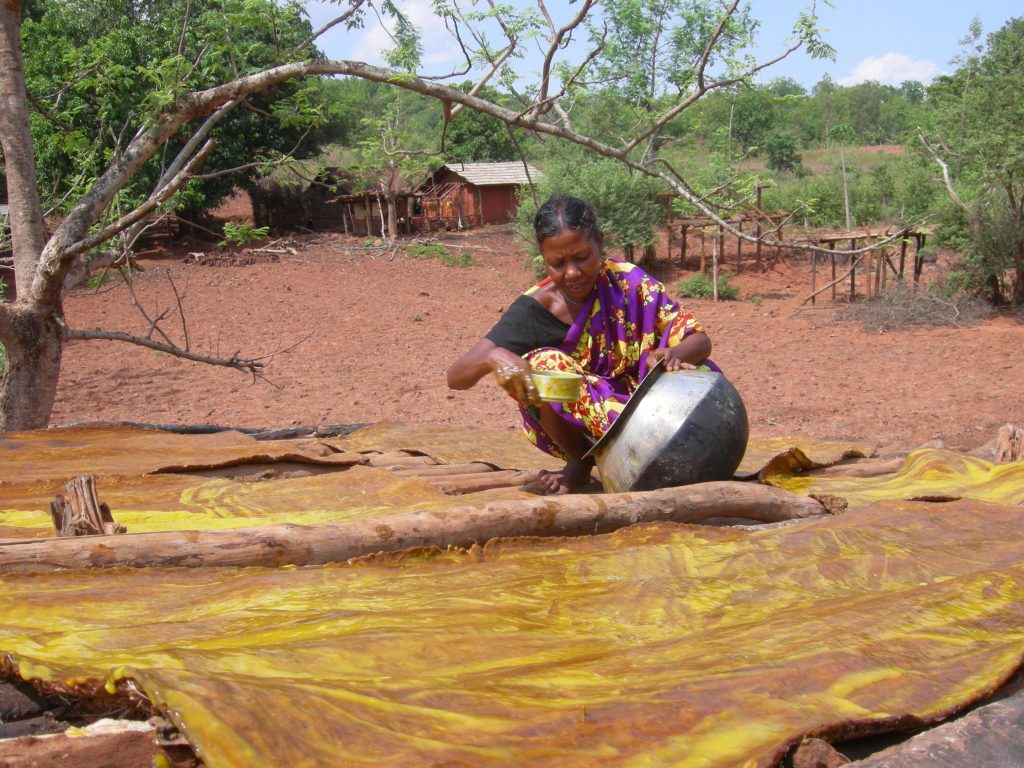Keonjhar: The livelihood of tribals in mineral-rich Keonjhar district hinges on the collection and sale of minor forest produce. But lack of food processing units and marketing facility has been a major obstacle for the economic development of tribals.
The forests of Keonjhar are full of mango trees, which provides seasonal livelihood to scores of tribals in the summer.
Tribals traditionally prepare pulp from unsold mangoes. Dry mango pulp has good markets throughout the country and even abroad while pickle is prepared from raw mangoes.
Some companies sell the product at high price, but poor tribals preparing the mango pulp in this district are deprived of right price in the absence of marketing facility.
Huge quantities of indigenous and hybrid varieties of mango are harvested in almost all parts of the district.
A large portion of mango crop gets rotten when the fruits are left unsold. If the district had a cold storage facility mango could have fetched a better price for farmers.
Experts say dry mango pulp has a huge potential to enrich tribals, though it is seasonal. But the locals are unable to get government support as far as food processing, preservation and marketing facilities are concerned, they added.
They added that lack of marketing and cold storage facilities, awareness and skills in pulp processing have been major hurdles in the development of mango pulp trade.
Traders exploit the tribals by paying throwaway price for mango pulp. But they rake in the moolah from the markets.
Experts say in order to push mango pulp business the government should provide the tribals with necessary support in training, marketing and cold storage facilities. Their skill development is also necessary to ensure preparation of quality pulp.
Tribals take a lot of pain while collecting mangoes from forests and drying the pulp under the sun. Sadly, the price they get for the product is not commensurate with their labour.
In the rainy season, preserving mangoes for long and drying the pulp is a difficult proposition. Packaging is said to be another important aspect for mango pulp for its salability.
In some cases, tribals prepare mango pulp in unhygienic condition. It may be unwholesome for consumption. Tribals need to be aware of the sanitation aspect. Due to lack of training, the tribals make pulp without ensuring its quality.
The government should come up with schemes to support and train them in this traditional trade for their economic development, said Harekrushna Mohant, a local environmentalist.
Sapan Goswami, executive officer of ORMAS (Odisha Rural Development and Marketing Society), said efforts are on to push mango farming and marketing the mango pulp with help of the horticulture department.
Juice of ripe mangoes is squeezed out and dried in mats made of date palm leaves under the sun. A piece of mango pulp (5 inch X 6 inch) is sold for Rs 50 to Rs 80. Sometimes, price of the pulp differs as per its thickness and quality.
However, traders sell a kg of pulp for Rs 200 to Rs 250 after packaging and labeling.
Experts say self-help groups should be encouraged to procure mangoes from tribals and prepare quality pulp.

